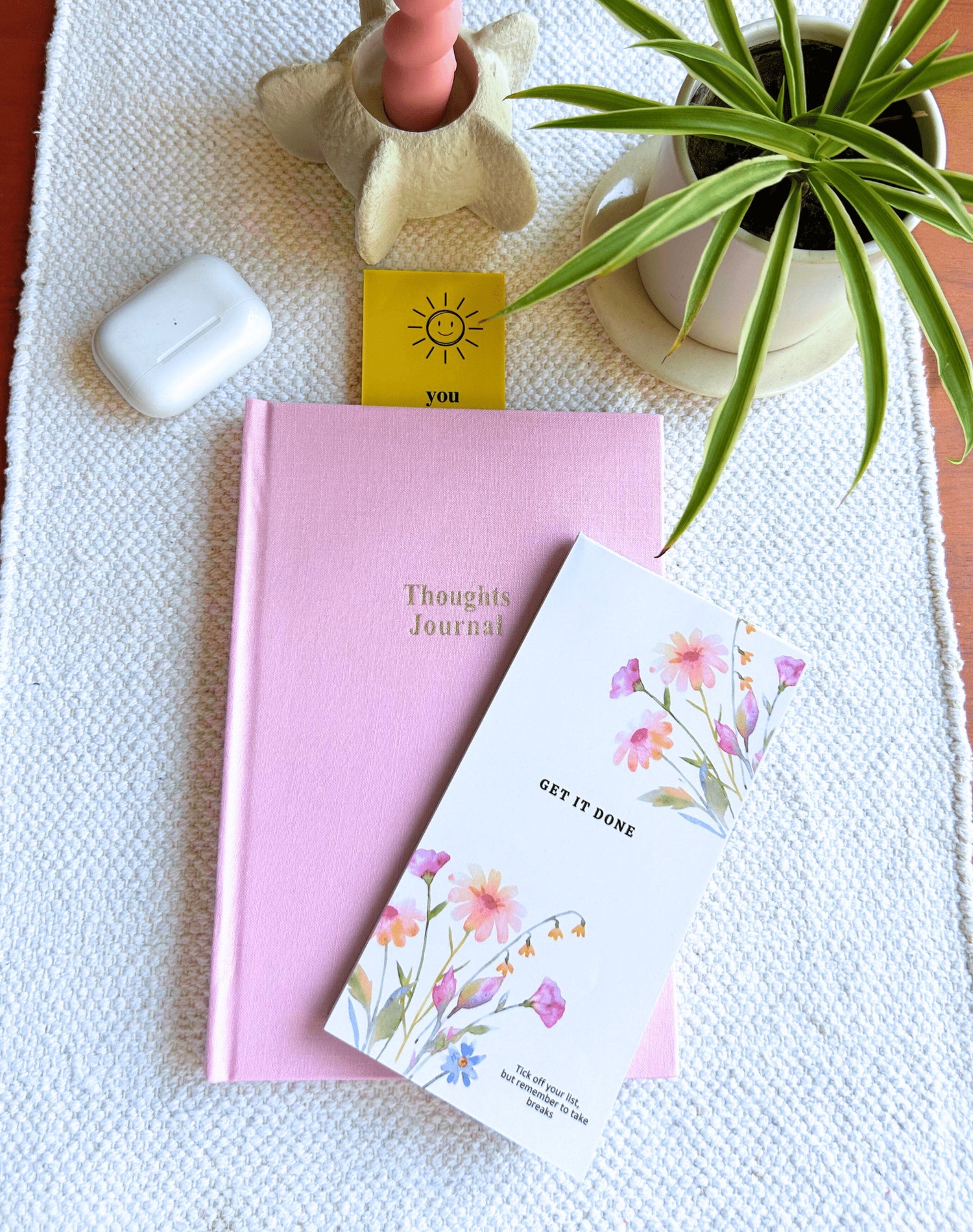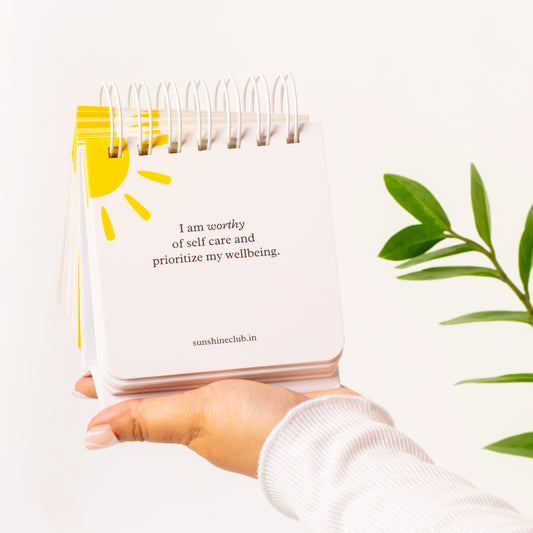
Love Thyself: The Science and Practice of Self-Love
Share
In a world that often measures our worth by external achievements—our jobs, relationships, or social media presence—learning to truly love oneself can feel like a radical act. Yet, the idea of "love thyself" is more than just a cliché. It is a crucial component of emotional well-being, mental health, and personal fulfillment.
Self-love is not about vanity or selfishness; it's about understanding your inherent value, accepting yourself with all your flaws and strengths, and treating yourself with the same kindness and compassion you would extend to others. Research increasingly shows that cultivating self-love can significantly impact our overall well-being, relationships, and resilience to life's challenges.
In this blog, we’ll explore what it really means to love yourself, why it’s so important, and how you can practice self-love in your daily life based on research-backed strategies.
What Is Self-Love?
Self-love is the practice of taking care of your own well-being and happiness, not out of selfishness, but because you deserve it. It's about recognizing your worth, accepting your imperfections, and making choices that prioritize your emotional, mental, and physical health.
Self-love encompasses several key components:
- Self-compassion: Treating yourself with the same kindness and understanding that you would offer to a friend, especially in moments of failure or difficulty.
- Self-acceptance: Acknowledging your flaws and strengths without judgment, and embracing who you are at your core.
- Self-care: Taking deliberate actions to nurture your mind, body, and soul.
- Self-respect: Setting boundaries, standing up for yourself, and ensuring that your needs are met in relationships and in life.
Why Is Loving Yourself So Important?
Loving yourself is not just a nice idea—it’s foundational for a healthy, happy life. Research suggests that self-love and self-compassion can have far-reaching benefits for both mental and physical health.
-
Better Mental Health A wealth of studies have shown that self-compassion and self-love are linked to lower levels of depression, anxiety, and stress. According to Dr. Kristin Neff, a leading researcher on self-compassion, individuals who practice self-love experience fewer symptoms of anxiety and depression because they don't berate themselves for their shortcomings. Instead, they learn to see their struggles as part of the shared human experience.
-
Increased Resilience Self-love equips you with the resilience to handle life's challenges. When you love yourself, you become better at bouncing back from setbacks because your sense of worth is not tied to success or failure. People who have high self-love are more likely to view failures as opportunities for growth rather than as reflections of their inadequacy.
-
Healthier Relationships How you treat yourself sets the standard for how others treat you. When you love yourself, you establish healthier boundaries, communicate your needs more effectively, and choose relationships that are supportive and respectful. Additionally, people with higher self-esteem and self-love are less likely to stay in toxic or unfulfilling relationships.
-
Improved Physical Health Interestingly, self-love also affects physical health. Research suggests that people who love themselves are more likely to engage in healthy behaviors such as regular exercise, proper sleep, and healthy eating. Self-love encourages you to take care of your body because you believe you are worth the effort.
Barriers to Self-Love
While the benefits of self-love are clear, many people struggle with it. Societal pressures, past trauma, and self-critical tendencies can make it difficult to cultivate a healthy relationship with oneself. Here are some common barriers to self-love:
- Perfectionism: Perfectionists often believe that they must be flawless to be worthy of love or success. This leads to a constant cycle of self-criticism and feeling inadequate, making it hard to embrace self-compassion.
- Comparison Culture: In the age of social media, it’s easy to fall into the trap of comparing yourself to others. This comparison often leads to feelings of inadequacy and envy, which erode self-worth.
- Negative Self-Talk: Many people engage in habitual negative self-talk, where they are overly critical of themselves. These internal dialogues can become deeply ingrained, making it difficult to see oneself in a positive light.
How to Practice Self-Love
Loving yourself doesn’t happen overnight, especially if you’ve spent years being overly critical of yourself. However, self-love is a practice, and with consistent effort, you can begin to change your relationship with yourself. Here are research-backed strategies to help you cultivate self-love:
1. Practice Self-Compassion
Self-compassion is the foundation of self-love. Dr. Kristin Neff describes self-compassion as being kind to yourself in times of struggle, recognizing that imperfection is a shared human experience, and being mindful of your emotions without getting overwhelmed by them.
How to Practice It:
- When you make a mistake or feel down, ask yourself: How would I treat a friend in this situation? Then, treat yourself with the same kindness.
- Remind yourself that everyone makes mistakes and that it’s okay to be imperfect.
2. Challenge Negative Self-Talk
One of the most common barriers to self-love is negative self-talk. These are the critical thoughts that tell you that you’re not good enough, smart enough, or attractive enough. Over time, these thoughts become ingrained, affecting your self-esteem and confidence.
How to Practice It:
- Notice when you’re engaging in negative self-talk. Awareness is the first step toward change.
- Replace negative thoughts with positive affirmations. For example, instead of thinking, "I’m not good enough," try telling yourself, "I am worthy of love and respect."
- Use journaling as a way to challenge and reframe negative thoughts.
3. Set Boundaries
Loving yourself means respecting your own needs and setting boundaries that protect your emotional and physical well-being. Boundaries are not about keeping people out—they're about letting the right people in, while ensuring that your values and limits are respected.
How to Practice It:
- Identify areas in your life where you feel drained, overwhelmed, or disrespected, and establish boundaries that protect your energy.
- Practice saying "no" without guilt. Saying no to things that don't serve you is an act of self-love.
4. Engage in Self-Care
Self-care is the practice of doing things that nourish your body, mind, and spirit. It’s not about indulgence but about taking care of yourself because you deserve it. When you engage in self-care, you send a message to yourself that you are valuable and worthy of love.
How to Practice It:
- Make time for activities that bring you joy, whether it’s reading, spending time in nature, or practicing a hobby.
- Prioritize your physical health by eating nutritious foods, exercising regularly, and getting enough sleep.
- Incorporate mindfulness or meditation into your routine to help reduce stress and center yourself.
5. Surround Yourself with Positive Influences
The people you surround yourself with can greatly influence how you feel about yourself. Toxic relationships, where you feel belittled or disrespected, can erode your self-worth, while supportive relationships can help you grow and feel more confident.
How to Practice It:
- Surround yourself with people who lift you up, encourage you, and support your journey toward self-love.
- Let go of relationships that are toxic or draining, and focus on building meaningful connections that reflect mutual respect and care.
Loving Yourself is a Lifelong Journey
Loving yourself is not a one-time event; it’s a lifelong journey of self-discovery, acceptance, and growth. There will be times when self-love feels difficult, especially when faced with challenges or failures, but that’s when it’s most important to practice kindness and compassion toward yourself.
As you cultivate self-love, you’ll find that it permeates every aspect of your life—from your mental and physical health to your relationships and career. Loving yourself is the foundation of a fulfilling, happy life, and it’s a gift you deserve to give yourself every single day.
So, take the time to appreciate who you are. Celebrate your strengths, embrace your imperfections, and treat yourself with the love and care you truly deserve. After all, the relationship you have with yourself is the most important one of all.








